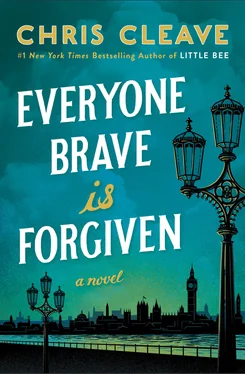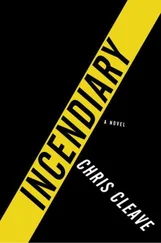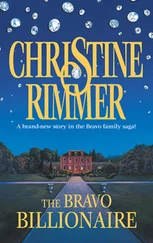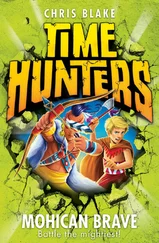He holstered the revolver, buttoned it down and knelt beside the man. The poor devil was facedown and heaving as he tried to breathe through his smashed and bloody nose. As Alistair turned the head and began to scoop the dirt out of the mouth, he saw that the man’s eyes had been put out. They didn’t bleed — the sockets had been packed with yellow dust like the mouth. A bloody foam hissed in and out of the man’s nostrils as he fought for air. Alistair removed dirt until finally the man could breathe, in coughing gasps that sprayed blood.
“I’m so sorry,” Alistair said.
He cradled the man’s head. The black hair was sticky with blood, and the yellow dust had caked on to it. He was older than Alistair — in his late thirties, perhaps. An hour ago he had been flying, his tie neatly knotted.
“Look what they have done to you. I am god-awfully sorry.”
The man’s jaws snapped tight around the side of Alistair’s right hand, opposite the thumb. The splintered teeth, horribly sharp, sliced all the way through to the bone. Alistair yelled. He smashed his free hand against the man’s jaw, but the teeth only bit down harder. Alistair twisted to change the angle, but agony gave the other man an awful strength. He dragged Alistair down to the ground.
“Stop it!” yelled Alistair. “Please! I am helping you!”
But the man no longer knew what was happening to him. He took Alistair’s throat, the thumbs pushing into the windpipe. With his free arm Alistair tried to push him away. Sparks began to slide across the blue sky, which faded to indigo, and to black.
A shot came, and the thumbs released his throat. Alistair drew a long, rattling breath. The teeth loosened on his hand and released it. Alistair rolled away through the dust. As his breath came back he managed to kneel. Simonson, who had shot the German through the side of the head, was still aiming the revolver. He wore an expression of distaste, and his lips moved silently for a while.
“Get up,” Simonson said at last.
After a long moment it occurred to Alistair that Simonson meant him. He stood unsteadily. A near-semicircle of flesh was missing from the side of his hand. Blood ran into the dust. Between him and Simonson, the German lay on his back with his arms laid neatly at his sides.
“Excuse me?” said the German.
Simonson and Alistair stared. Blood and yellow fluid drained through a hole in the man’s temple and another hole in the opposite cheek.
“Excuse me?” the man said again.
Simonson shot him a second time, in the chest. Alistair supposed that some invariant politeness had caused him to wait until he was sure what the man had said. The German’s body bucked twice, arching and relaxing. Then he drew a long, hissing breath and said, “Sorry, I think you are speaking English?”
Simonson lowered his pistol and looked furiously at Alistair.
“I am confused,” said the airman. “I have had maybe an accident. Excuse me… for my English.”
“Your English is fine,” said Alistair.
“You are… what is the expression?… too kind.”
Alistair knelt beside the dying man. “I’m sorry.”
“Please let me go. Do not make me prisoner. I have fear for… my son. He is… not a forceful boy and I worry… that he might… excuse me…”
The man fought for breath. Bloody foam leaked from his mouth.
“It’s all right,” said Alistair. “It’s quite all right.”
“If I am… prisoner… he might… at school be bullied… and…”
Simonson shot the German again, the bullet striking in the chest. The man’s ruined mouth worked as he tried for another breath. Simonson shot him three times more in quick succession, the bullets destroying the abdomen. Blood and fluids welled through the dark flying jacket.
“And,” said the man, “and…”
“I’ve no more rounds,” said Simonson.
“And the… child is… so… so…”
Alistair took his revolver, aimed it quickly and fired with his eyes almost closed. It was not a good shot, the bullet striking to the side of the man’s forehead, lifting away a part of the scalp and exposing the skull but not penetrating it. The force of it had knocked the head to one side. It was Alistair’s last round too. The man took another breath, and another.
Alistair dropped to his knees and did the only possible thing, taking two handfuls of the yellow dust and pressing them into the man’s mouth. He still felt the hot breath hiss from the man’s nostrils, so he pinched the nose closed and held the body down until it ceased to struggle.
When it was over, Alistair stood. He and Simonson watched the man in silence, not at all sure he was dead. If the war had proved anything it was that life had unexpected resistance to the instruments with which men had been issued.
Simonson lit a cigarette. “I shan’t forgive you for this.”
“No,” said Alistair. “I don’t suppose I would.”
“We have to go. When we get to Bingemma we’ll send a burial detail.”
“I’d sooner stay and bury him now.”
Simonson shook his head. “It wouldn’t make either of you feel better.”
The Maltese, who had watched the whole thing from their doorways, emerged into the street to give the two officers a slow, ironic handclap. The sound rang in the square while Simonson and Alistair walked to the truck.
Between the yellow stone buildings, in front of the soot-blackened church, the cold northwesterly began its work of covering the dead man in dust.
MARY ARRIVED AT ST. Helen’s church at ten to four, in premature twilight under smoke. The city smelled of brick dust and charcoal. The hush was already on it — people had gone down to the shelters early.
“Sleep well?” said Huw.
“Dreaming of you.”
“Go on with you. The little one’s out the back already.”
Mary joined Hilda in the cab of the Hillman. In the yard behind the church the wall was down, revealing the acres that used to be Bishopsgate. In drizzle, boys in shorts picked through the ruins for shrapnel and brass.
“Look at it all,” said Hilda. “They say we shall win, but how?”
“Father says the city will have to move underground if this goes on.”
“I should hate that, shouldn’t you?”
“I suppose there will be ventilation shafts and skylights.”
“Well there’s something to look forward to. And are there to be murals down there, of woodland glades and seascapes?”
“Look on the bright side,” said Mary. “There might be—”
“There isn’t a bright side underground. It’s just dark.”
“We must simply do our best then, with Tilley lamps and ‘Kumbayah.’ ”
“Lovely,” said Hilda, “but I might take my chances on the surface.”
“They won’t let you. Even after we win, Father says preparedness will be the thing. Society will be organized, and people will live where they’re told, and do the jobs they’re given, and be permanently ready to fight. Father says that was our mistake, after the last war. We let people live willy-nilly.”
“Yes, it was lovely.”
“Father says it lasts about twenty years. After that, anyone half organized will do this sort of thing to us.”
Mary cranked the wipers to clear drizzle from the windshield, the better to indicate the rubble.
Hilda said, “If that is really the future, then what is the point in living?”
“We could have hobbies.”
“One of my hobbies is tea. Shall we go to the crypt and drink some?”
“Don’t you care about the future of civilization?”
“No,” said Hilda, “I care that Alistair still hasn’t replied to my letter.”
“Oh,” said Mary.
“I can’t stop thinking of him. Aren’t you the slightest bit sympathetic?”
Читать дальше












